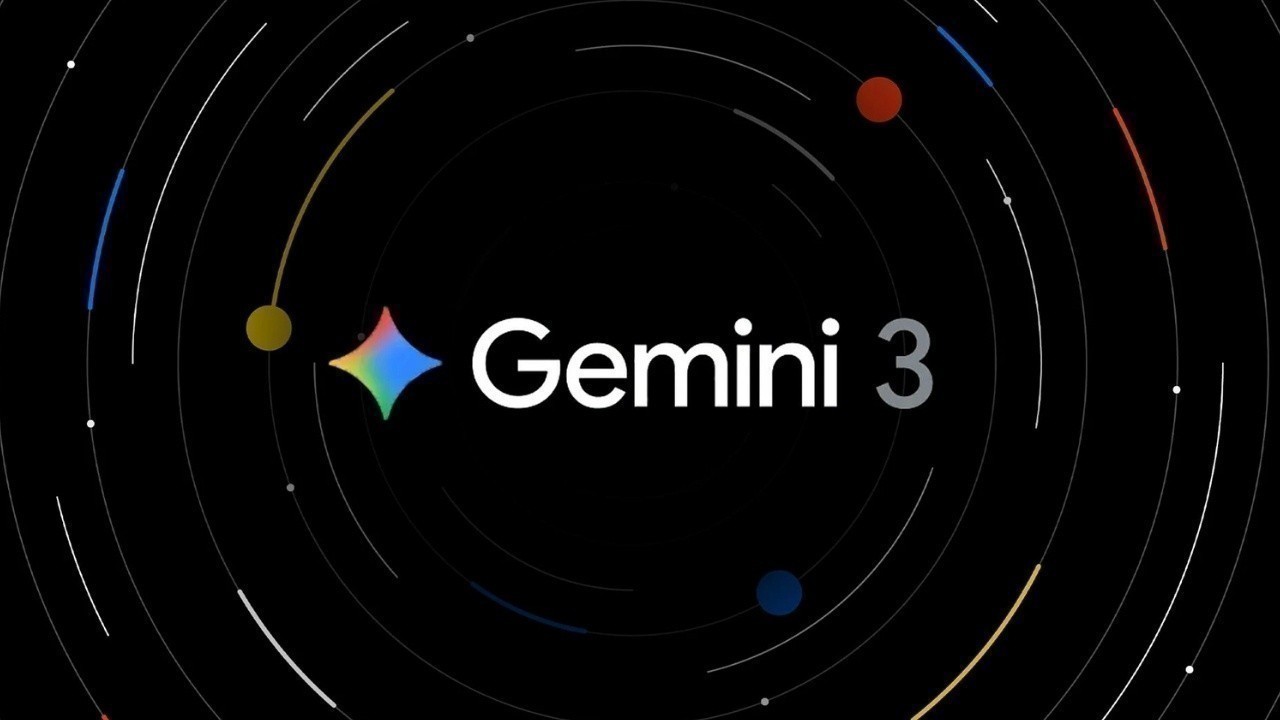
Post by : Anis Karim
Artificial intelligence has reached another milestone this week with the launch of Google’s Gemini 3. For everyday users—students, professionals, parents, hobbyists—the arrival of this new model signals more than just a tech-upgrade. It promises to reshape how we search, learn, create, and interact with devices. But with it come questions: What will change? Will my phone or search experience suddenly feel different? Are there new risks or habits to adopt? This article cuts through the hype and focuses on what you, as a regular user, should care about right now.
Gemini 3 is Google’s most advanced AI model to date, built to handle text, images, videos and more in a unified way. Unlike earlier models that focused mainly on text, Gemini 3 is designed to understand multiple kinds of input (a photo, a text prompt, a drawing) and respond with more complex, integrated output. For example, you might upload an image of a drawing and ask it to turn it into a website layout, or show it a diagram and request a simplified explanation.
Google says Gemini 3 is now embedded in its search engine’s “AI mode” toggle, meaning users may access the new capabilities through Google Search itself — not just via a separate chat app. For many users, this means AI will be part of the “everyday” experience, not a separate niche product.
The significance is that Google is making AI a mainstream tool, not an “extra”. For the user, it’s less about watching a demo and more about “Will I notice a difference when I search or chat?”. Yes — you likely will.
You no longer have to type everything. You could share a photograph of handwritten notes, a screenshot, a sketch, even a short video clip—with Gemini 3 able to interpret that and provide a helpful answer. For instance, you might photograph a recipe, ask the model to optimise it for two people, tweak ingredients you have on hand, and receive a new version of the recipe.
When you perform a query, instead of just getting a list of links, you may get richer responses: interactive visuals, side-by-side comparisons, embedded micro-tools (like a mini calculator inside the answer), and follow-up suggestions. If you ask something like “What’s the best camera under ₹50,000 for travel?” you may see an interactive table, pros/cons, image samples and even conflict-resolution suggestions (e.g., budget vs weight vs battery life) all in one view.
Gemini 3 introduces “agentic” features—meaning the AI can perform a series of tasks for you. For example, you might ask it to “Plan a weekend in Goa with family, staying within ₹30,000, include vegetarian meals, and highlight kid-friendly activities.” It will generate an itinerary, link suggestions, cost breakdowns, and possibly reserve options or suggest how to modify the plan. This is not just answering a single question but orchestrating multiple steps.
Ten years ago, AI responses often felt superficial or generic. With Gemini 3, Google emphasises deeper reasoning: nuanced answers, ability to ask clarifying questions, detect ambiguity in your query and offer more precise help. It’s built to avoid “safe but vague” responses and instead engage more meaningfully.
While the launch is global in announcement, availability will vary by region, device, and subscription tier. Free-tier users may get some features later, and premium capabilities might be limited to paid plans. In India, for instance, a major telecom partner announced free access for many users. The user should check their device and subscription status.
Students and lifelong learners will find richer support. Need help with a physics problem, a historical event, or a complex chart? Instead of just reading explanations, you may get visual breakdowns, step-by-step reasoning and interactive tools. If you’re reading a research paper or watching a lecture, do you want a summary? Gemini 3 can handle long inputs and complex formats.
Whether you’re designing a poster, editing a video, planning a small website or writing a script, Gemini 3 offers the ability to understand sketches, diagrams, video snippets and transform them into usable output. If you photograph a drawing, it might turn it into vector artwork or translate your plan into code. For hobbyists, that means fewer tools, more “one place to do it all”.
Tasks like sorting emails, drafting replies, summarising chats, planning trips, organising files—now AI can assist. If you say “Organise my inbox, highlight action items, set reminders and draft responses for the flagged ones,” the model might do all of that in a workflow. That means your phone or browser becomes a smarter assistant, not just a tool.
When you’re researching a purchase, figuring out travel plans, checking health options, or even looking for recipes, Gemini 3-powered search may offer fewer clicks, less jumping between links and more consolidated, interactive answers. That saves time—but it also means you need to be aware of how the results are generated.
Not all features will be free or available immediately. Some advanced abilities (multimodal uploads, deep agent workflows) may require a paid subscription or device upgrade. Users should verify what tier they’re using and whether features are available in their region.
Uploading drawings, photos, videos or documents to an AI raises questions about what data is stored, how it’s used and how secure it is. Everyday users should check the privacy policy, decide what type of content they share with the model, and possibly avoid sensitive personal or financial documents until they’re comfortable.
Even with advanced AI, the model is not infallible. It can still make mistakes—especially when dealing with missing context, ambiguous prompts, or creatively complex tasks. Relying solely on it for critical decisions (financial advice, medical suggestions, legal decisions) isn’t wise. Use it as a powerful tool—but maintain human oversight.
Since Gemini 3 is deeply integrated into Google Search, the way you find, consume and trust information may change. If AI-generated answers replace link-heavy results, you may visit fewer websites directly, which could mean less access to full source context. Be sure to stay alert: check original sources if needed, look for any “Powered by AI” badges, and remain aware of bias or omissions.
Richer multimodal AI often requires better connectivity, more memory or newer devices. If your smartphone or tablet is older, you may not get the full experience right away—or you may experience lag, battery drain or limited features. Users with older hardware should be patient and plan accordingly.
If you’re in India and use Google’s AI services, check if you have access to Gemini 3 features. Some telecom partners have already extended free access for certain users. Verify via the app or service provider.
Also, ensure your device (phone/tablet/PC) is up to date: install the latest OS updates, update the Google app, and check if your account is eligible for new AI features.
You might start by experimenting with small features today: upload a photo of a receipt and ask the model to summarise spending; snap your handwritten notes and ask for a digital version; take a short video clip and ask for editing suggestions. These mini-tests help you gauge what your device and account are capable of.
If you already see an “AI mode” toggle or special icon in Google Search, try a complex query: ask for logical explanations, step-by-step guides, or creative output. Note how the response differs from usual search results. If the model offers interactive features, explore those.
If you plan to use Gemini 3 for work or study, set up a routine: allocate time to explore the new features, decide where they’ll help (e.g., drafting, brainstorming, summarising) and where human involvement remains essential. Avoid over-reliance yet.
Since richer features may use more data (video uploads, image analysis), check your internet plan and battery reserve. If network speeds are slow, you may get less benefit from these new features.
Roll-out in India may happen in phases. Some features may activate later; updates may require specific regions or languages first. Keep an eye on announcements from Google or your service provider.
As more people use AI-generated answers via Search, fewer may visit traditional websites. This may affect how information is surfaced and how easily you find in-depth articles or niche forums. Users who prefer deep research may need to dig deeper rather than rely on instant summaries.
Education, training, hobbies and creative work are likely to evolve faster. Having an AI that can process photos, videos and diagrams means learners may rely more on interactive prompts than textbooks. Creators will integrate AI tools into how they storyboard, draft and publish. For everyday users, this means both opportunity and a need to adapt to new workflows.
If Gemini 3 becomes the standard, users will expect their devices (phones, tablets, laptops) to support richer AI tasks. This may accelerate hardware upgrades or push users to web-based access if device capability is limited.
As AI becomes more capable, the questions of how our data is used, how content is generated, and how bias is managed will move from niche tech-policy circles into daily conversations. Everyday users will increasingly face decisions about what they share, what they trust and how they protect themselves online.
The launch of Gemini 3 marks a tangible moment in AI becoming part of everyday life for millions. For the regular user, this isn’t a remote developer tool—it is something you can try by using Search, uploading a photo or video, asking a complex question, or automating some routine tasks. The potential is substantial: better learning, faster creative workflows, smarter productivity and richer experiences on the devices you already use.
However, with opportunity comes responsibility. It remains important to stay aware of subscription levels, data usage, device capability, privacy settings and the fact that AI is a powerful assistant—not an infallible source of truth. As the features roll out, everyday users will benefit most by exploring cautiously, integrating new tools where they help and remaining grounded in human judgment where they don’t.
If you’re ready, this week is a good time to explore Gemini 3. Start small, test a multimodal feature, try a complex query, compare results, and see how the new layer of AI fits into your everyday tasks. Because soon, the question won't be whether you use AI—it will be how well you do.

Dulquer Salmaan Faces On-Screen Slap Drama in ‘Kaantha’
Bhagyashri Borse recalls hesitating to slap Dulquer Salmaan in ‘Kaantha’. The 1950s-set drama earns

Karan Johar Hints at Ahaan Panday-Aneet Padda’s Possible Romance
Karan Johar sparks rumours about Ahaan Panday and Aneet Padda, exciting fans after the release of Sa

Miss India Manika Vishwakarma stuns in electric blue swimsuit at Miss Universe 2025
Miss India Manika Vishwakarma wows in an electric blue one-piece swimsuit at Miss Universe 2025, sho

Etihad & Vietnam Airlines Launch Codeshare, Connect Asia & Mideast
Etihad and Vietnam Airlines join forces with a codeshare, linking Abu Dhabi to Hanoi and beyond, exp

Madhuri Dixit Returns as a Dark Serial Killer in Mrs Deshpande
Madhuri Dixit stuns fans with a dark new avatar in Mrs Deshpande, a thriller series where she plays

Winter Skincare Guide 2025: Keep Your Skin Soft, Hydrated, and Glowing
Prepare your skin for winter 2025 with hydrating cleansers, moisturisers, sunscreen, and simple habi

Aaishvary Thackeray to Face Ahaan Panday in Action Thriller
Rising star Aaishvary Thackeray to play villain opposite Ahaan Panday in Ali Abbas Zafar’s upcoming

PTPA Nears Settlement with Tennis Australia Over Player Concerns
PTPA is close to settling with Tennis Australia over player welfare concerns and tournament practice

Mushfiqur Rahim Hits Century in 100th Test Against Ireland
Mushfiqur Rahim scored a century in his 100th Test against Ireland, becoming the 11th batter in hist

Shubman Gill Misses Second Test, Rishabh Pant to Captain India
Shubman Gill ruled out of second Test vs South Africa; Rishabh Pant captains, Sai Sudharsan steps in

Italy Beats Austria to Reach Davis Cup Semi-Finals 2025
Italy beat Austria 2-0 in Davis Cup to reach semi-finals, with Berrettini and Cobolli leading, setti

IIHF to Require Neck Guards at 2026 Milano Cortina Olympics
IIHF makes neck guards mandatory for players at 2026 Milano Cortina Olympics after a fatal 2023 inju

Jesper Wallstedt Leads Wild to 4-3 Win Over Carolina Hurricanes
Jesper Wallstedt made 42 saves and led Minnesota Wild to a 4-3 shootout win over Carolina, with Bold

Mushfiqur Rahim Scores Century in 100th Test Against Ireland
Mushfiqur Rahim scored a century in his 100th Test against Ireland, joining cricket legends and mark

Sonam Kapoor Glows as She Announces Second Pregnancy in Diana-Inspired Look
Sonam Kapoor announces her second pregnancy in a Princess Diana-inspired pink outfit, receiving warm